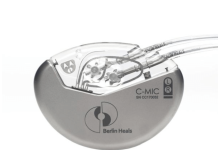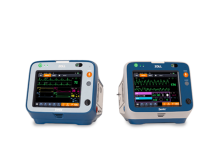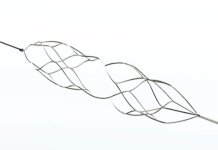Women’s health company OCON Therapeutics has secured $10m to advance its drug delivery system used for abnormal and heavy uterine bleeding.
The investment round was led by RH Capital, with participation from Features Capital, Astia Angels, Exerte Partners, grants from the Israeli Innovation Authority and business angels.
Related: Ronovo Surgical raises $46m to advance surgical robot platform
The funding is set to advance OCON’s IUB SEAD and IUB PRIMA 3D stent drug delivery frames, both designed to tackle abnormal and heavy uterine bleeding.
OCON has successfully completed Phase IIb clinical studies for the IUB SEAD, a spherical endometrial ablation (EA) device. One of the studies (NCT04381416) evaluated the safety and efficacy of the device in 16 premenopausal women suffering from abnormal uterine bleeding. Patients received up to two 30-minute EA sessions using the device, in a hospital outpatient clinic.
The company is preparing to initiate a pivotal study in the US and will commence discussions with the US Food and Drug Administration (FDA) through an investigational new drug (IND) submission.
Abnormal and heavy uterine bleeding affects one in three women. While pharmacologic treatment options exist, some women seek less maintenance-intensive or definitive treatments. EA is a minimally invasive procedure for acute uterine bleeding, using energy to uniformly destroy the uterine lining.
OCON’s lead product, IUB Ballerine, is a hormone-free contraceptive intrauterine device (IUD) that uses copper to prevent pregnancy. However, Ballerine differs from traditional T-shaped IUDs, which are known for invasive and often painful insertion. Designed by gynaecologist Dr Ilan Baram in 2008, the Ballerine is about one third the size of a standard IUD. The asset utilises the company’s intra-uterine ball (IUB) technology, showcasing a flexible spherical-shaped design.
The Modiin, Israel-based company is now gearing up for a Series A funding round that will support expanding its product pipeline to tackle long-term endometriosis treatment through its IUB STELLA, and uterine fibroids with its IUB ADIRA.
OCON’s CEO Keren Leshem said: “We address the most prevalent uterine pathologies, more common than diabetes or heart disease, while ensuring targeted and lower-dose treatments to alleviate side effects and minimise risks associated with surgeries or non-compliance to oral medication.”
According to a report on GlobalData’s Medical Intelligence Center, OCON is one of the key players in the active development of copper IUDs.




